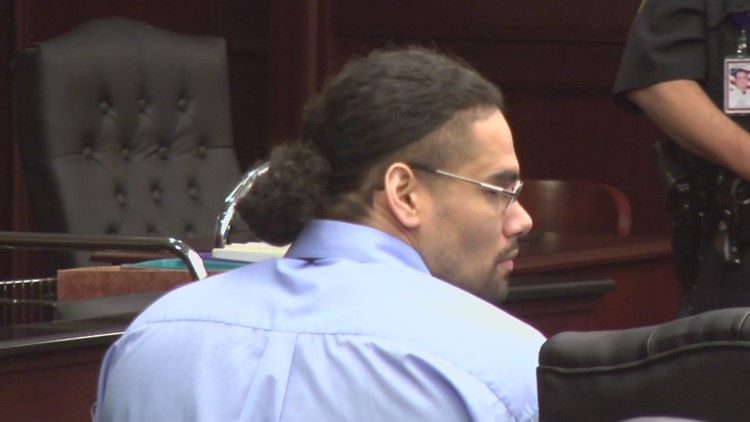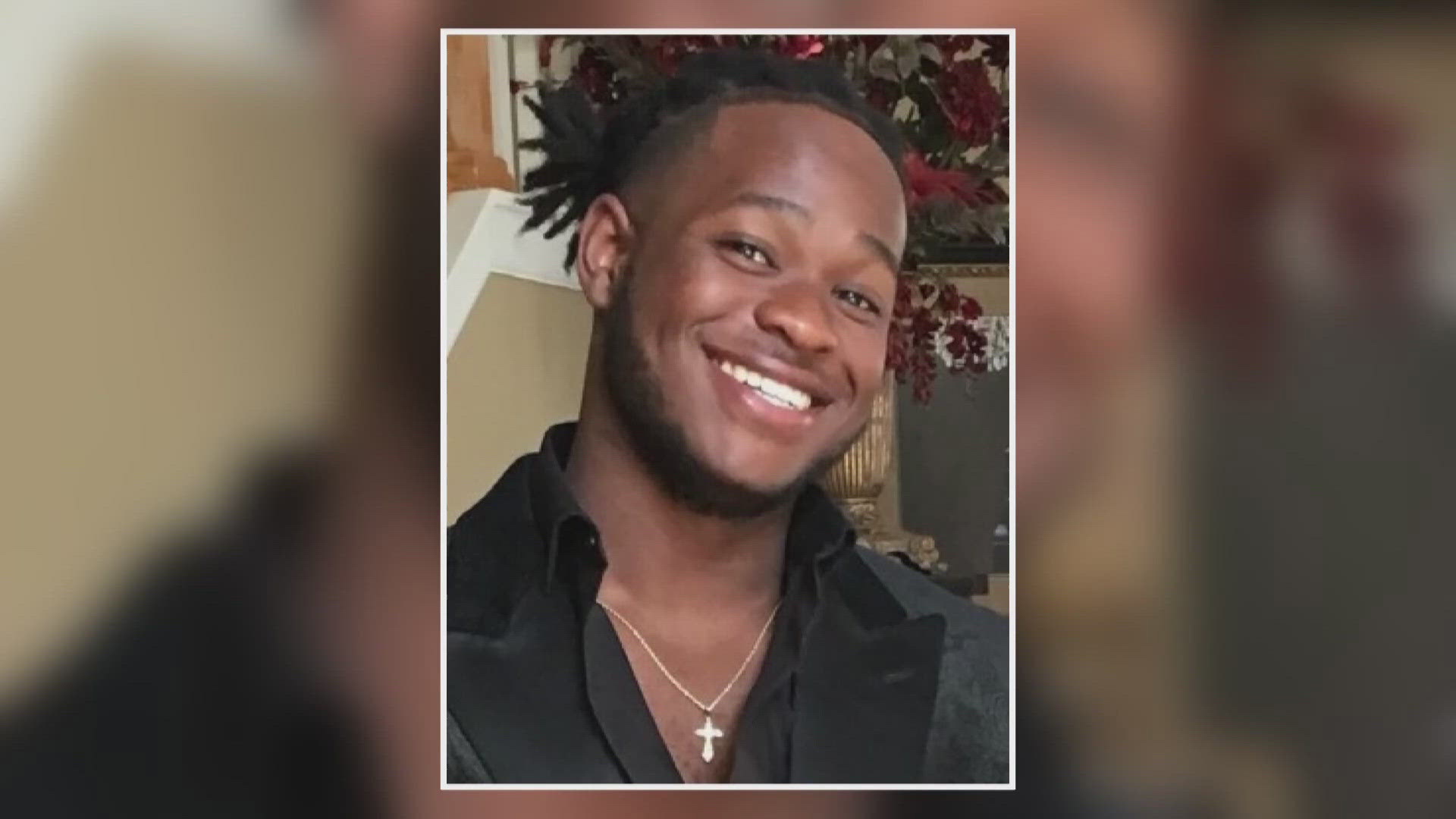JACKSONVILLE, Fla. — Following an eleven day trial, a jury issued a suggestion that Johnathan Quiles will be sentenced to life in prison. The state was seeking the death penalty for Quiles, who was convicted of the first-degree murder of his underage niece, Iyana Sawyer, and her unborn baby.
To sentence a defendant to death, Florida law says a jury must have at least eight votes.
Quiles was also found guilty of sexual battery for raping Sawyer. Her body was never found, but investigators contend Quiles killed her because she was carrying his child and refused to have an abortion.
Monday's decision came after a day-long sentencing phase, where family members and a neighbor spoke as character witnesses for Quiles.
Loved ones of Sawyer's also spoke of the heartbreak they had endured following her death.
Final day of testimony
During Monday's sentencing phase, the defense made a case for Quiles, portraying him as having had a difficult childhood.
Family told the courtroom his mother had died when he was ten and his father was absent.
The court also heard from a psychologist, who had three meetings with Quiles prior to testifying. She told jurors Quiles's highest level of education is sixth grade and he has anti-social personality disorder. She also testified that Quiles grew up in an area with high crime and poverty and his father was a criminal.
Several other relatives, as well as a neighbor who said Quiles was "like (a) son" to him, spoke to the jury about Quiles's personality and character in his defense.
Sawyer's family also had a chance to present victim-impact statements. Her sister, Samiya, testified that students at school asked her, "Is that dead girl your sister?"
She spoke about how she could no longer go into her childhood bedroom, because it broke her heart to see one bed instead of two. She said Iyana was "thrown away like trash."
How was Quiles found guilty?
The belief that the child belongs to Quiles is backed up by his two confessions – one to his brother and one to jail informants on a secret recording. In those conversations, Quiles detailed attempting to strangle Sawyer at the automotive junkyard where he worked, but ultimately shooting her. He said he disposed of her body in an onsite Dumpster that he knew would be emptied at the Otis Road Landfill. Police searched the landfill for 16 days, and although they didn’t find Sawyer, they did find what investigators determined was her Victoria’s Secret underwear and a Terry Parker textbook, along with receipts from Ace Pick A Part, where Quiles worked.
In closing arguments, Quiles’ attorney returned to the fact that no body was ever found after the teenager disappeared in late 2018.
“Where is the evidence of this crime occurring at Ace Pick A Part?” defense attorney Christine Michel asked the jury. “How can someone be shot in the chest, bleed, and there be no evidence whatsoever?”
She said there were holes in the state’s case and noted that before she disappeared, Sawyer herself denied any inappropriate conduct by her uncle.
“[Her mother asked] if there was anything inappropriate, anything of a sexual nature, anything whatsoever at all. They both told her no. Never,” Michel said.
Prosecutor Dan Skinner pushed back, saying there was a “mound” of evidence, including dozens of sexual and occasionally threatening Snapchat messages from Quiles to Sawyer.
“The Snapchat alone tells you there was a lot of sex going on between the defendant and [Sawyer] under everybody’s nose,” he said. “It’s a horrible secret to put on a 14- and 15-year-old-child. It’s despicable.”
He reminded jurors that investigators found Quiles’ DNA on the crotch of Sawyer’s underwear, though they could not determine if it was from blood, semen or saliva. Skinner said that didn’t matter.
“The last place a 33-year-old man’s DNA should be is on the inside of a 15-year-old girl’s underwear.”



